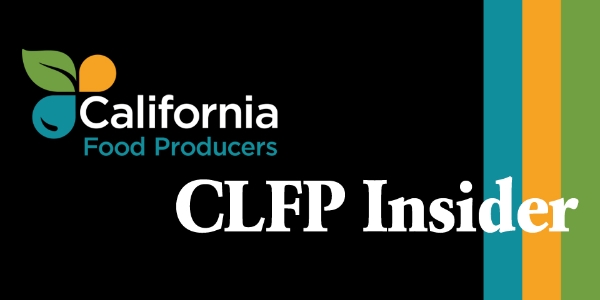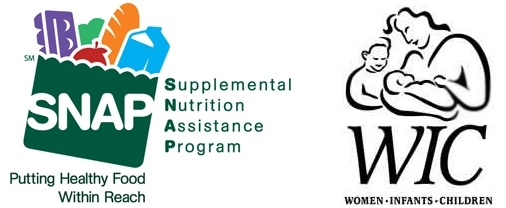Respect for your privacy is our priority
The cookie is a small information file stored in your browser each time you visit our web page.Cookies are useful because they record the history of your activity on our web page. Thus, when you return to the page, it identifies you and configures its content based on your browsing habits, your identity and your preferences.
You may accept cookies or refuse, block or delete cookies, at your convenience. To do this, you can choose from one of the options available on this window or even and if necessary, by configuring your browser.
If you refuse cookies, we can not guarantee the proper functioning of the various features of our web page.
For more information, please read the COOKIES INFORMATION section on our web page.


 The California League of Food Producers (CLFP) along with a coalition of can manufacturers and food banks, has been engaging the California Department of Food and Agriculture, the Lt. Governor and the Governor’s Office of Business and Economic Development to ask for their assistance to both preserve the competitiveness of the agricultural producers and processors, and to ensure food security and availability. The
The California League of Food Producers (CLFP) along with a coalition of can manufacturers and food banks, has been engaging the California Department of Food and Agriculture, the Lt. Governor and the Governor’s Office of Business and Economic Development to ask for their assistance to both preserve the competitiveness of the agricultural producers and processors, and to ensure food security and availability. The  Of greater concern is the announced closure of U.S. Steel’s Pittsburg, California plant scheduled for the end of 2023. With the closure of that plant, U.S. tinplate production will drop to below 50% of U.S. market needs. No tin plate steel or black plate will be manufactured west of the Mississippi River. Domestic production of tinplate and black plate used to make cans for food have declined each year since the 232 tariffs were imposed even as consumer demand has grown from COVID related shutdowns and fear of supply chain failures. Furthermore, allocations of tinplate and black plate quotas by country will essentially force U.S. tinplate importers to purchase from China. CLFP believes those allocations should be adjusted to allow can manufacturers to obtain the most competitive pricing.
Of greater concern is the announced closure of U.S. Steel’s Pittsburg, California plant scheduled for the end of 2023. With the closure of that plant, U.S. tinplate production will drop to below 50% of U.S. market needs. No tin plate steel or black plate will be manufactured west of the Mississippi River. Domestic production of tinplate and black plate used to make cans for food have declined each year since the 232 tariffs were imposed even as consumer demand has grown from COVID related shutdowns and fear of supply chain failures. Furthermore, allocations of tinplate and black plate quotas by country will essentially force U.S. tinplate importers to purchase from China. CLFP believes those allocations should be adjusted to allow can manufacturers to obtain the most competitive pricing. The impact to California is particularly significant given the large contribution of the agricultural producers to the nation’s food supply. Yet some local schools and institutions in California are using imported foods over food produced just miles from that location. This is occurring even with the strong efforts in Congress and in the California Legislature to encourage Buy American* and California Grown, respectively.
The impact to California is particularly significant given the large contribution of the agricultural producers to the nation’s food supply. Yet some local schools and institutions in California are using imported foods over food produced just miles from that location. This is occurring even with the strong efforts in Congress and in the California Legislature to encourage Buy American* and California Grown, respectively. **: SNAP and WIC are two different public health and nutrition programs funded by the federal government. Supplemental Nutrition Assistance Program (SNAP, also commonly known as food stamps) and Women, Infants, and Children (WIC) assist low-income families and their children in purchasing healthy foods through an Electronic Benefit Transfer (EBT) card or a WIC check.
**: SNAP and WIC are two different public health and nutrition programs funded by the federal government. Supplemental Nutrition Assistance Program (SNAP, also commonly known as food stamps) and Women, Infants, and Children (WIC) assist low-income families and their children in purchasing healthy foods through an Electronic Benefit Transfer (EBT) card or a WIC check.





























